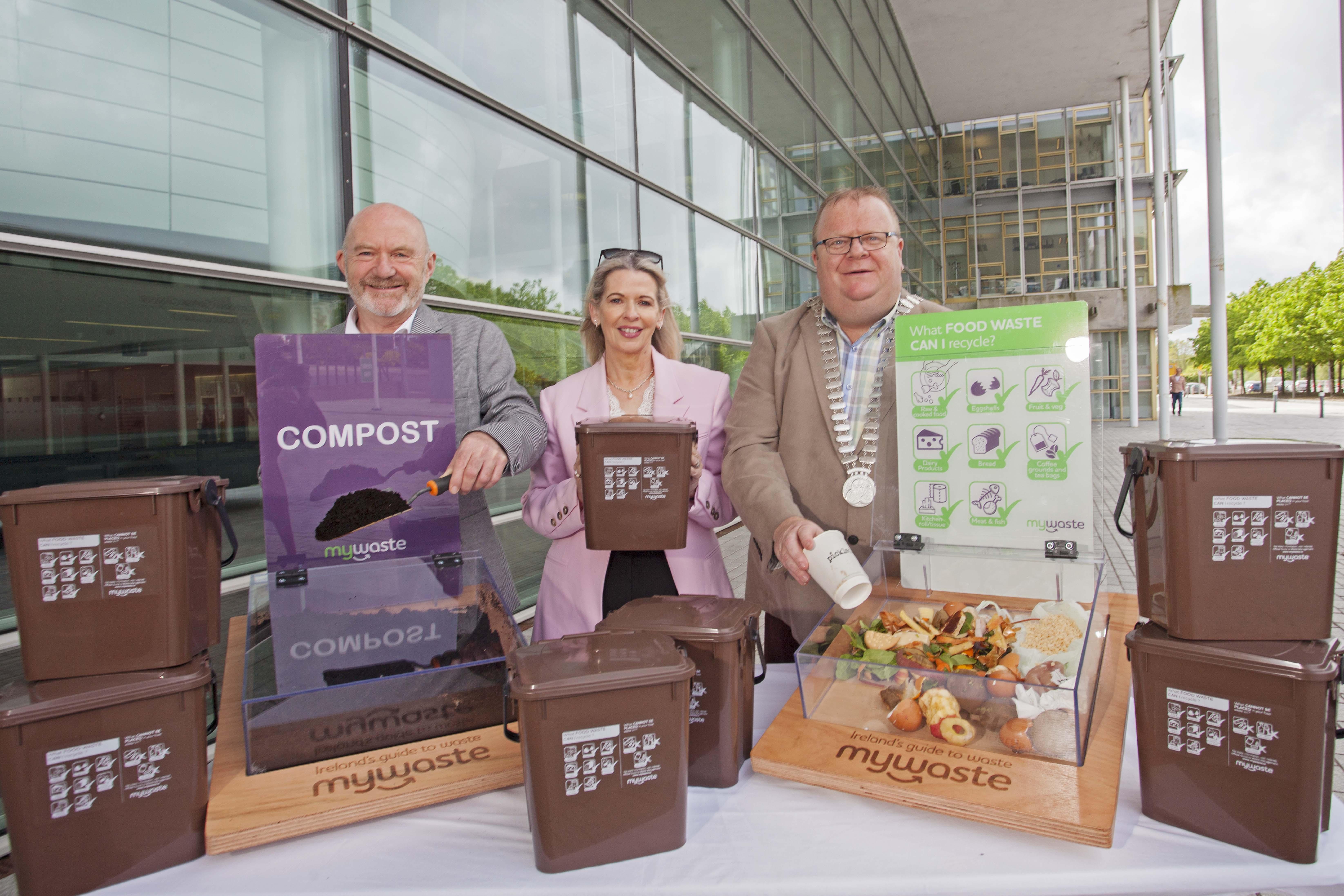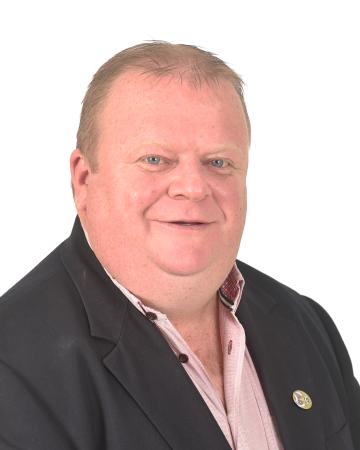National Food Waste Recycling Week 2023
Separating food waste is a positive climate action that we can all make

Now in its second year, National Food Waste Recycling Week will run from the 5th until the 11th of June 2023. This campaign, managed by MyWaste.ie will provide practical advice, with easy-to-follow hints and tips to encourage everyone to recycle more of their food waste.
As part of the campaign, Cork County Council will host exhibitions and talks in Council libraries in Mallow and Fermoy on Tuesday 6th June, in Youghal and Cobh on Wednesday 7th June and in Bandon and Skibbereen on Thursday 8th June. To assist people in separating their food waste, a supply of food waste caddies, each with a starter pack of caddy liners and an information leaflet will also be available to the public at all libraries and mobile libraries across the county throughout the week-long campaign subject to availability.
In Ireland, we waste about 800,000 tonnes of food each year, according to current best estimates. Growing, processing and transporting food uses a huge amount of resources, such as land, water, energy and fertiliser. If food is wasted, these resources are wasted too. The EPA estimates that food waste costs the average Irish household about €60 per month or €700 per year. That’s an annual national cost of €1.29 billion.Mayor of the County of Cork, Cllr. Danny Collins encouraged everyone to make a change this Food Waste Recycling Week,
This year’s campaign aims to ensure that people understand that food waste needs to be fully separated from all packaging such as plastic or other containers. Doing so will prevent contamination at compost and anaerobic digestion facilities, leading to higher quality recycling.
The overall aim of the campaign is to generate awareness of the role of food waste recycling in diverting this valuable resource from landfill and allowing it to be transformed into renewable energy and fertilisers for horticulture and agriculture use in Ireland. This will have a lasting impact as it will create green jobs now and into the future. The campaign is being managed by Ireland’s three regional waste management planning offices and funded by the Department of the Environment, Climate and Communications.
Properly recycled food waste can be used to produce energy through anaerobic digestion and to produce clean, organic fertiliser.
Minister Ossian Smyth, Minister of State with responsibility for Public Procurement, eGovernment and the Circular Economy, said: “Did you know that you can save money and cut carbon at the same time, just by sorting your food waste? During this year’s National Food Waste Recycling Week, we’re going to show businesses and households how to easily cut food waste. It’s more money in your pocket but it’s also a source of clean energy and climate-friendly fertiliser.”
Minister Charlie McConalogue, Minister for Agriculture, Food and the Marine, said: “This National Food Waste Recycling Week my message to everyone is straightforward. We all have a role to play in reducing food waste. It benefits our local environment, can help us reach our climate targets, helps us show our farmers, fishers and food producers that we value their products and of course it can help us save money on our grocery bills. Working together with colleagues in government we are committed to our global climate targets and protecting our local environment. There is a wealth of information on how every household can reduce their food waste at MyWaste.ie and I encourage everyone to consider trying out some of their practical ideas that can help you to play your part.”
Pauline McDonogh, Circular Economy Coordinator, Southern Waste Region, said: “Organic waste collected in the brown bin accounted for 11% of all household waste managed in 2020 (199,823 t). The tonnage of organic waste increased by 25% when compared to the 2019 tonnage (159,385 t). However, previous EPA studies have shown that most household organic waste (over 60%) continues to be placed in the residual (black) or recycling bins and therefore not recycled.”
From January 1st, 2024, under new national legislation to be introduced later this year all waste management companies will be obliged to provide food waste recycling bins for compostable material which will radically improve Ireland’s management of food waste. This campaign is focused on continuing to educate people on what can be put into their food waste recycling bin. It will highlight the importance of separating waste food from its packaging to ensure we reduce contamination and achieve high quality recycling. This is good for the Irish environment as it is a closed production process and supports our circular economy.
Events will be held nationwide to highlight National Food Waste Recycling Week 2023, supported by local authorities, the Composting and Anaerobic Digestion Association of Ireland (Cré) and members of the Irish Waste Management Association (IWMA).
In addition, the MyWaste.ie team will be hosting talks each day at the Bloom Sustainable Living Stage during the Bord Bia Bloom Festival. Here, visitors will be able to hear from the MyWaste.ie experts as well as gardener Marie Staunton on how food waste recycling works and its benefits using several interactive exhibits. There will also be an opportunity for attendees to ask questions at each session.
For more details on Food Waste Recycling Week activities in Cork County, visit Food Waste Recycling Week in Cork County Events
For more information on the National Food Waste Recycling Week 2023 programme, visit national food waste recycling week - mywaste My Waste

